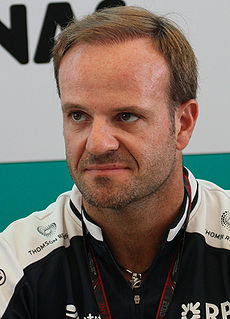A Quote by Charles Koch
My philosophy, one of the biggest enemies of future success is past success, because you become complacent, you become risk averse, and that's one of the things we try to drive here, and this is fundamental to this philosophy, and that's in this component change, and also in value creation. That we need to drive creative destruction, not just incremental innovations, but innovations that will change the whole nature of the business.
Quote Topics
Also
Because
Become
Biggest
Business
Change
Complacent
Component
Creation
Creative
Creative Destruction
Destruction
Drive
Enemies
Fundamental
Future
Future Success
Incremental
Innovations
Just
Nature
Need
One Of The Things
Past
Past Success
Philosophy
Risk
Success
Success Is
Things
Try
Value
Whole
Will
Related Quotes
Success is when the whole gets enlightened. When you become one with the whole, that's the real success. To be one with the whole is the real success. And when that success is achieved, then you really enjoy that growth - that growth of your awareness which makes you one with the whole. That is what you have to know, is to become your whole. You are just a fragment, a segment, a cell. You have to become the whole and that can be done only through this connection.
The reason why it is so difficult for existing firms to capitalize on disruptive innovations is that their processes and their business model that make them good at the existing business actually make them bad at competing for the disruption. Companies in fact are specifically organized to under-invest in disruptive innovations! This is one reason why we often suggest that companies set up separate teams or groups to commercialize disruptive innovations. When disruptive innovations have to fight with other innovations for resources, they tend to lose out.
Science...has become identified with a philosophy known as materialism or scientific naturalism. This philosophy insists that nature is all there is, or at least the only thing about which we can have any knowledge. It follows that nature had to do its own creating, and that the means of creation must have included any role for God.
Companies, in fact, are specifically organized to under-invest in disruptive innovations! This is one reason why we often suggest that companies set up separate teams or groups to commercialize disruptive innovations. When disruptive innovations have to fight with other innovations for resources, they tend to lose out.
I recognize thart even you, yourself, will change. Your ideals will change, your tastes will change, your desires will change. Your whole understandings of who you are had better change, because if it doesn't change, you've become a very static personality over a great many years, and nothing would displease me more. And so I recognize that the process of evolution will produce changes in you.
If you have a strong business idea, then it is comparatively easy now to get capital. It is a positive thing that increasingly more people want to join the startup bandwagon. However, to build a successful business, focus on creating more value through the product, and direct your efforts on solving real issues. If you manage to build a sustainable product, revenue will follow. A lot of startups fail because they concentrate on incremental innovations, increasing user base, and monetisation before strengthening the core of their business.

































